Puksta Portal for Civic Engagement
Scholar Portal
Puksta Foundation Core Values

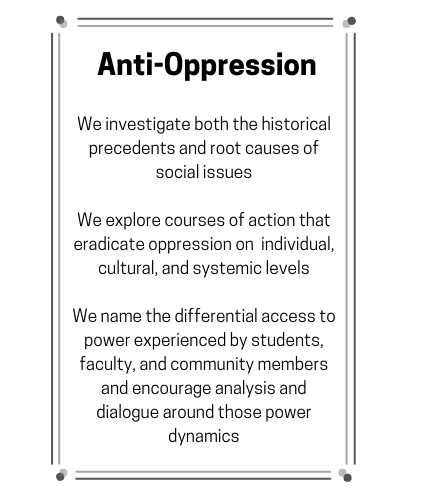
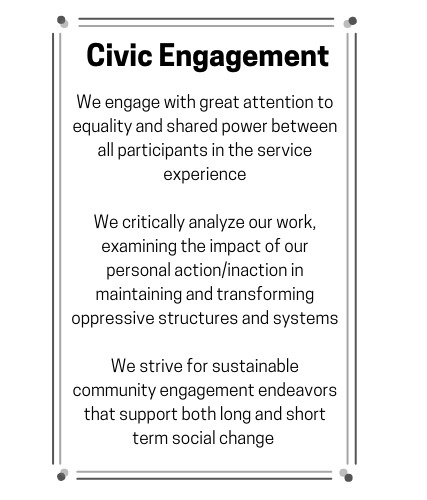
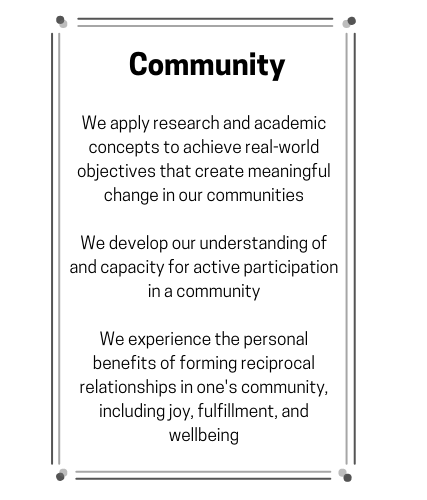
Puksta Foundation Model of Civic Engagement
Puksta scholars will engage in a stimulating, thoughtful and inclusive civic engagement program. Civic Engagement is defined as taking individual and collective actions that are designed to identify and address issues of public concern.
Throughout their time in the Puksta Program, each scholar will engage in a variety of activities in order to explore and develop their civic knowledge, skills, dispositions, and experiences, which will be centered around the eco-social justice issues and communities they are most passionate about.
- Civic Knowledge. Civic knowledge includes a fundamental understanding of both the historical precedents and root causes that shape eco-social issues as we experience them today, and the processes by which community organizing addresses those issues. It is the exploration of how privilege and oppression simultaneously occur on the individual, cultural, and institutional levels in our lives and in larger social contexts. Civic knowledge includes utilizing a systems approach to broaden and deepen our thinking about complex eco-social justice issues and the interconnections between them.
- Civic Skills. Civic skills are the skills necessary to participate as informed, thoughtful, and engaged members of our communities. These skills include but are not limited to thoughtfully speaking, listening, collaborating, community organizing, and public advocacy. Civic skills are necessary for thinking critically, building mutually beneficial relationships, and participating in collective action. Additionally, civic skills require the ability to gather and process information, and establish correlations and cause and effect relationships in order to create lasting and meaningful change.
- Civic Dispositions. Civic dispositions are attitudes, beliefs, and traits that are essential for creating positive change to cultivate healthy, equitable, and just communities. This includes a sense of personal efficacy, personal identity, spiritual growth, moral development; relating from a strengths based approach of understanding communities; centering the needs and perspectives of communities/community members most impacted by injustices; and holding oneself accountable for their actions, big and small, being rooted in ethics and integrity.
- Civic Experience. Civic Experience is participating in thoughtfully organized actions or activities that are responding to community identified needs. This includes volunteering, collaborating, deliberating, speaking, voting, researching, and other activities designed to learn about community issues, assist others who are working to address those issues, and influence opinions and further actions. Ideally, such experiences are reciprocal exchanges of knowledge and resources accomplished through service and reflection.
By engaging in such endeavors, scholars will serve as models of civic and social responsibility promoting positive change within our communities. This work will effectively integrate learning in and outside the classroom resulting in an enhanced and illuminating educational experience and responsible citizenship.
Scholars are supported in their Puksta journey by an experienced team of faculty/staff, other scholars and an enriching program of seminars, speakers, service projects and opportunities to collaborate and share insights.
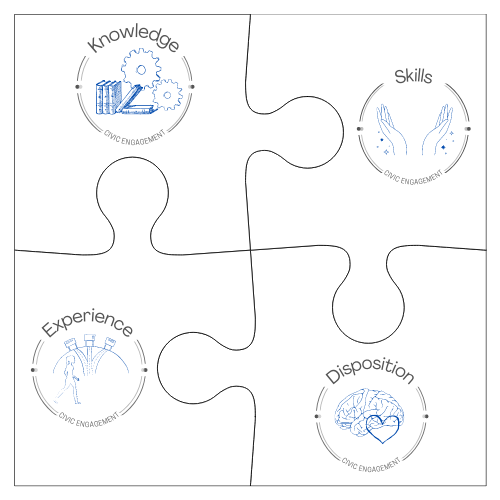
Puksta Foundation Civic Engagement Outcomes
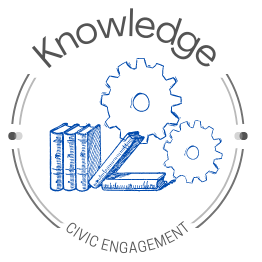
Civic Knowledge
Upon graduating from Puksta, Scholars will:
- Research historical precedents of social injustice
- Analyze the root causes of social injustice
- Explore how privilege and oppression occur on the individual, cultural, and systemic level in their own lives and in broader social contexts
- Analyze and map power as it relates to eco-social justice issues
- Study and apply community organizing philosophy and skills
- Understand and apply intersectionality in engagement with eco-social justice efforts
- Broaden and deepen their thinking about complex and interconnected eco-social justice issues affecting our world today
- Use an anti-oppression analysis to inform action, including:
- Developing a critical self-awareness of one’s identities
- Engage in constant critical reflection
- Centering the knowledge/voices of communities most impacted by injustice and systemic oppression
- Actively working against white supremacy
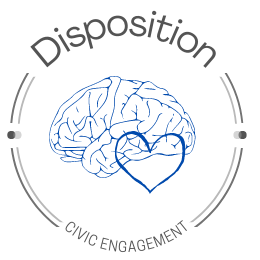
Civic Disposition
Upon graduating from Puksta, Scholars will:
- Develop a greater sense of personal efficacy, personal identity, spiritual growth, moral development
- Take actions that are informed by anti-oppressive values at both individual and systemic levels
- Value relationships and seek to foster new ways of relating from a strengths based approach of understanding communities
- Center the needs and perspectives of communities/community members most impacted by injustice
- Value reflection as part of the process of learning and growing
- Hold themselves and others accountable for their actions, big and small, being rooted in ethics and integrity
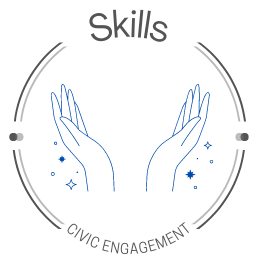
Civic Skills
Upon graduating from Puksta, Scholars will:
- Engage in critical inquiry, analysis and reasoning
- Demonstrate exceptional communication skills including active listening, courageous conversation, cultural awareness, writing, and dialogue facilitation
- Establish correlations and cause-effect relationships between issues in their communities
- Participate in and facilitate collaborative decision making processes
- Engage in strategic planning, setting and reaching SMART goals
- Foster mutually beneficial and equitable relationships with communities and individuals
- Practice critical evaluation and reflection personally and professionally
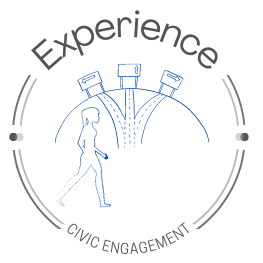
Civic Experience
Upon graduating from Puksta, Scholars will:
- Integrate knowledge, skills, and values to inform actions with individuals and communities
- Apply insight gained from exposure to a variety of social change work perspectives and environments
- Encounter the nuance and complexity of eco-social justice issues and navigate social change endeavors with a systems approach

